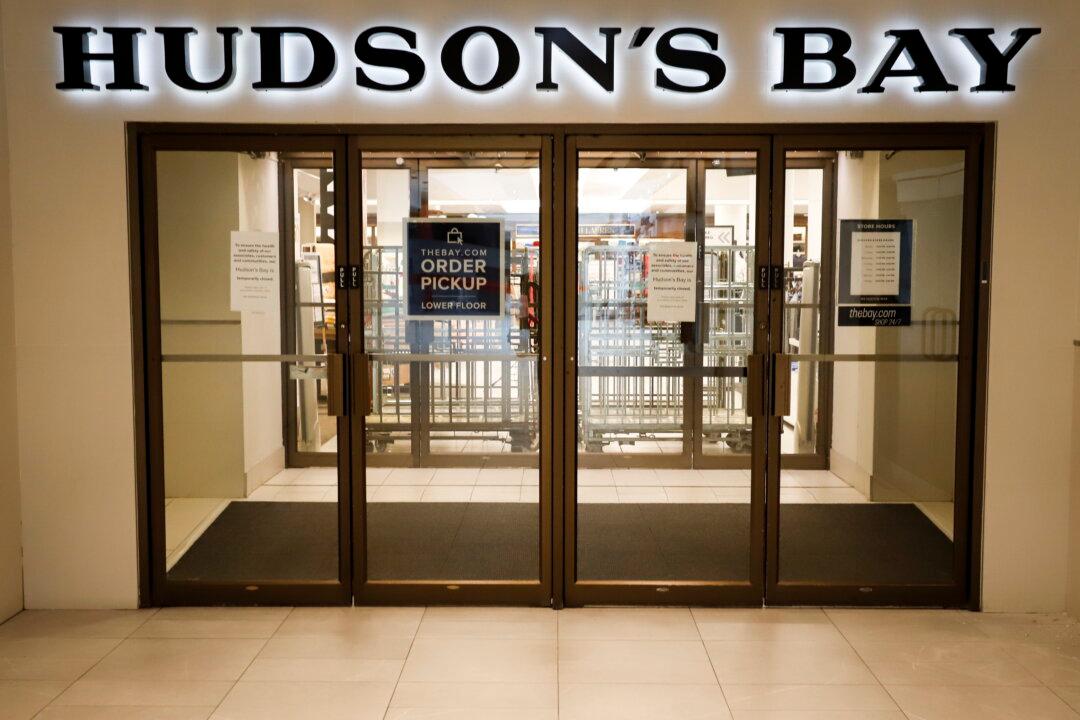Hudson’s Bay Co., the oldest company in North America, has filed a judicial review seeking to ease the restrictions on “non-essential” retail in Toronto and Peel regions.
A judicial review is a legal process by which the court examines government decisions, to ensure that they are fair and reasonable. The company filed an application to the Ontario Superior Court on Dec. 10, calling the lockdowns “irrational,” “arbitrary,” and “devoid of logic and consistency,” reported The Globe and Mail.





